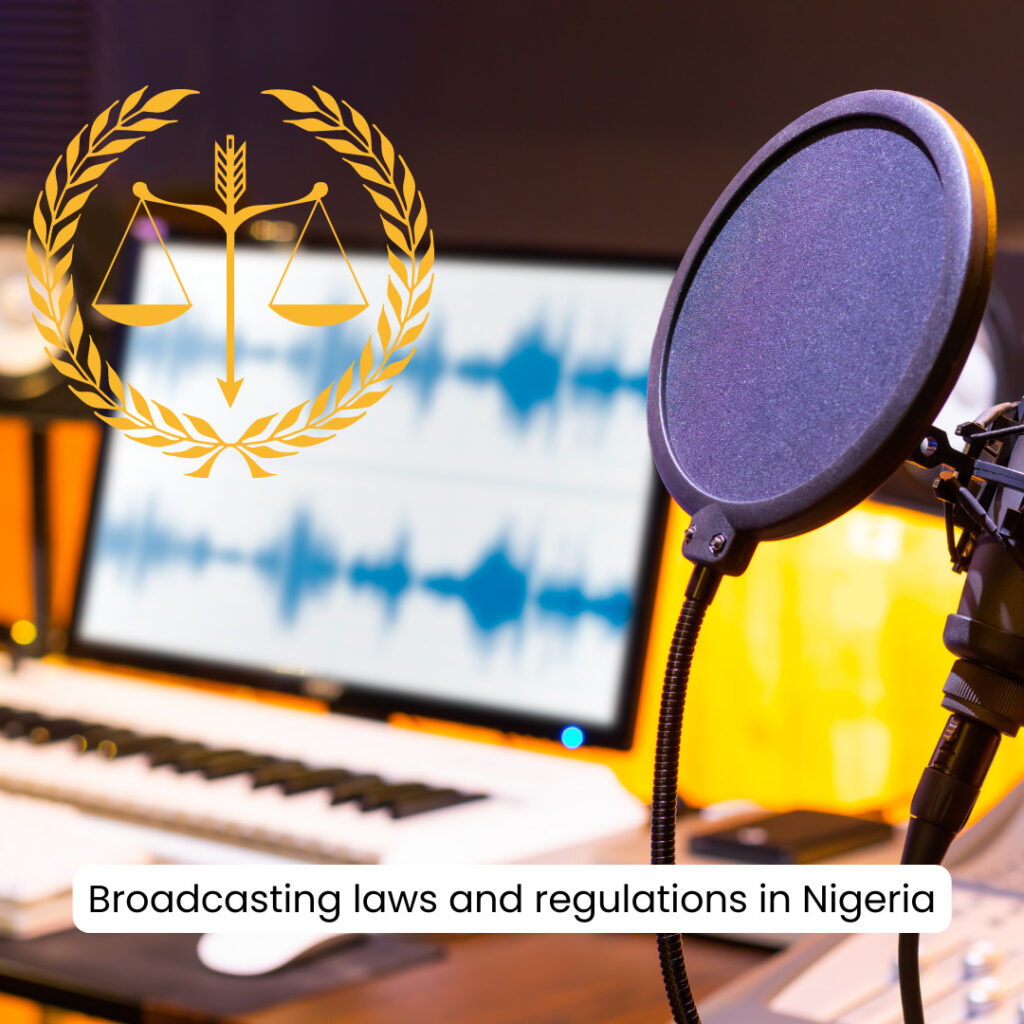Understanding Broadcasting Laws and Regulations in Nigeria
Broadcasting serves as a powerful tool for disseminating information, entertaining, and connecting communities. In Nigeria, a country with a diverse population and a rapidly growing media landscape, broadcasting plays a crucial role in shaping public opinion and reflecting the nation’s cultural mosaic. To ensure that broadcasting remains a force for good while upholding ethical standards and promoting responsible content, a framework of laws and regulations is necessary. In this article, we delve into the world of broadcasting laws and regulations in Nigeria, exploring their significance, key provisions, challenges, and implications for both broadcasters and the public.
The Foundation of Broadcasting Regulations
Broadcasting laws and regulations in Nigeria form the foundation for a responsible and accountable media environment. These regulations govern various aspects of broadcasting, including content standards, licensing, ownership, advertising, and public interest obligations. The overarching goal is to strike a balance between freedom of expression and the need to protect public interest, social harmony, and national security.

Significance of Broadcasting Regulations
Broadcasting regulations hold significant importance for several reasons:
- Content Standards: Regulations ensure that broadcast content adheres to ethical and cultural norms, safeguarding the well-being of viewers and promoting responsible media practices.
- Public Interest: Regulations require broadcasters to serve the public interest by providing informative, educational, and culturally diverse content.
- Media Pluralism: Laws that promote diversity in ownership and content contribute to a vibrant and pluralistic media landscape.
- Fair Competition: Regulations foster fair competition among broadcasters, preventing monopolies and ensuring a level playing field.
Key Provisions in Nigerian Broadcasting Laws
Nigeria has established key provisions and regulatory bodies to oversee broadcasting activities:
- National Broadcasting Commission (NBC): The NBC serves as the regulatory authority for broadcasting in Nigeria. It is responsible for licensing, content regulation, and ensuring compliance with broadcasting laws.
- Code of Conduct: The NBC has developed a Broadcasting Code that outlines guidelines for content, advertising, sponsorship, and other aspects of broadcasting.
- Local Content Quotas: Broadcasting regulations often include provisions for promoting local content, ensuring that Nigerian culture, languages, and stories are represented.
- Ownership Restrictions: Regulations may impose limits on foreign ownership and control of broadcasting stations to preserve national sovereignty and cultural diversity.
Challenges and Considerations
Broadcasting regulations in Nigeria face a range of challenges:
- Freedom of Expression: Balancing freedom of expression with the need to prevent hate speech, incitement, and other harmful content poses a complex challenge.
- Convergence: The digital age blurs the lines between broadcasting, telecommunications, and online content, requiring regulations to adapt to technological advancements.
- Enforcement: Ensuring consistent enforcement of regulations across various platforms and channels is crucial for maintaining accountability.
- Rapid Technological Changes: The evolving landscape of broadcasting technologies demands agile regulations that can keep pace with industry developments.
Looking Ahead
The future of broadcasting laws and regulations in Nigeria holds promise:
- Digital Transition: Regulations should adapt to the digital transition, embracing streaming, online platforms, and other emerging technologies.
- Content Diversity: Encouraging diversity of voices and perspectives in broadcasting can enrich public discourse and reflect Nigeria’s multicultural society.
- Media Literacy: Promoting media literacy among the public can empower viewers to critically engage with broadcast content and discern credible information.
- Stakeholder Collaboration: Collaboration between regulatory bodies, broadcasters, content creators, and civil society can lead to more effective and inclusive regulations.
Conclusion
Broadcasting laws and regulations in Nigeria are essential pillars of a thriving and responsible media landscape. By striking a balance between freedom of expression, public interest, and ethical standards, these regulations contribute to a media environment that informs, entertains, and empowers citizens. As Nigeria’s broadcasting sector continues to evolve, adapting to technological changes and embracing a diverse array of voices, a proactive and responsive approach to regulations will help shape a future where broadcasting remains a powerful force for positive change and collective progress.
